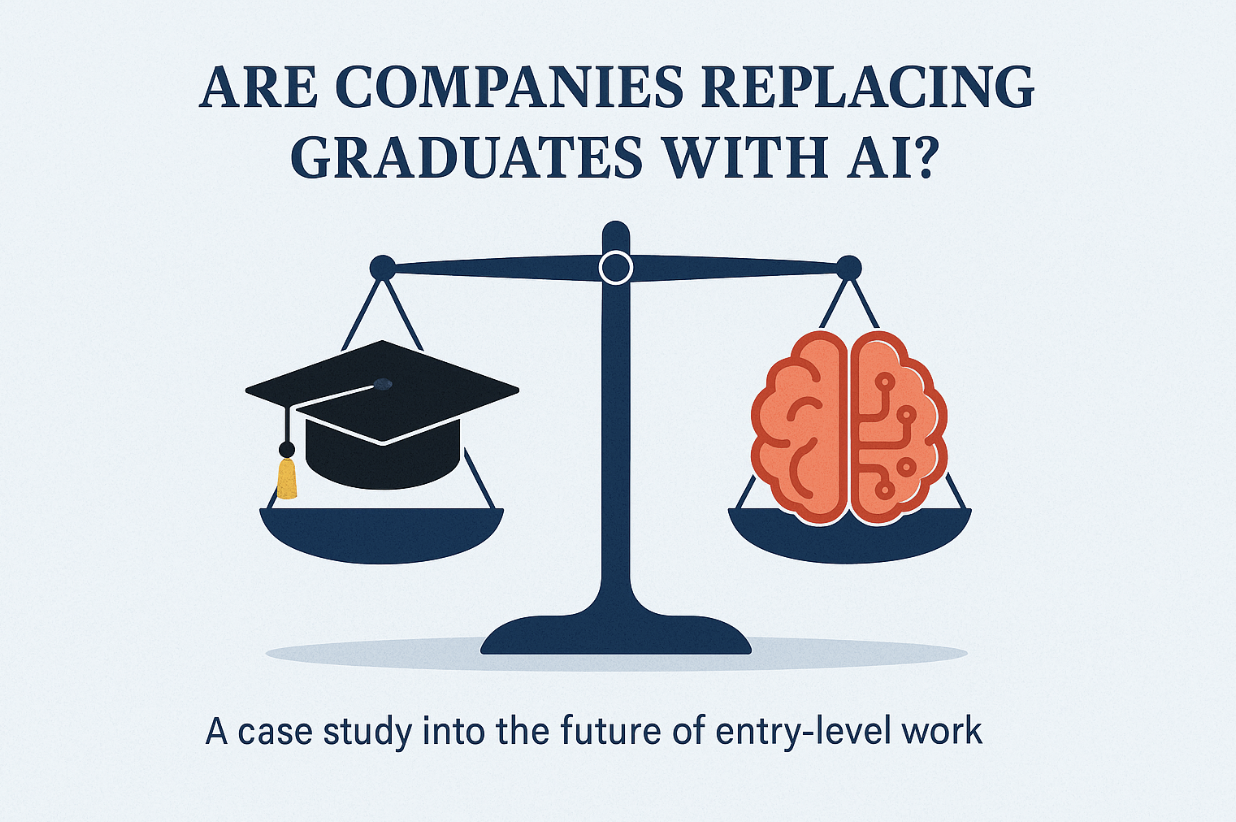Are Companies Replacing Graduates With AI? A case study
For many new graduates, the dream of landing that first job is starting to feel out of reach. Social media is filled with stories of shrinking entry-level opportunities, while headlines warn that artificial intelligence (AI) is “eating into” traditional white-collar roles. This has fueled a troubling rumor: companies are no longer hiring graduates because they’re replacing them with AI.
It’s a striking claim—one that plays on very real anxieties about the future of work. But how much of it reflects reality?
The Power of Narrative
Much of the noise comes from high-profile tech leaders with a clear interest in shaping the conversation. For example, Salesforce CEO Marc Benioff claimed that 50% of workloads are now handled by AI. Similarly, Dario Amodei, CEO of Anthropic, warned in 2025 that AI could eliminate up to half of entry-level white-collar jobs within five years, potentially pushing U.S. unemployment as high as 10% to 20%.
These statements should be taken with caution. Companies often benefit when they appear to be cutting costs—layoff announcements, for instance, frequently trigger stock price bumps. Now consider the double incentive for firms selling AI systems: they can boast about replacing workers with AI while also marketing their technology as indispensable.
A Case Study: Apporto
At Apporto we both build and embed AI tools. Our leadership team has adopted a straightforward mantra: if we promote AI externally, we must also use it internally.
Like most software firms, our largest expenditure lies in engineering. Gartner analyst Philip Walsh notes that the leading use case for AI in business has been coding and software development. With this in mind, we’ve worked closely with our engineering team to make AI part of daily workflows.
We’ve also tested a range of tools—Copilot, Cursor, and others—and found that AI consistently boosts productivity. Interestingly, the employees who benefited most from these tools were often recent graduates, many of whom entered the workforce already comfortable with AI thanks to their studies.
That said, our hiring philosophy has evolved. Before bringing on new graduates, we ask: have we fully leveraged AI to maximize the productivity of our current team? Only when the answer is yes do we consider expanding headcount.
In this sense, AI hasn’t eliminated graduate hiring—but it has raised the bar. By amplifying the output of our existing employees, AI reduces the urgency to expand teams. Yet as Walsh points out, “There’s so much software that isn’t created today because we can’t prioritize it. AI is going to drive demand for more software creation, and that’s going to drive demand for highly skilled software engineers who can do it.”
What This Means for Graduates
The bottom line: AI isn’t replacing graduates—it’s reshaping what’s expected of them. Productivity thresholds are higher, but opportunities remain abundant for those with the right skills. To students studying computer science, my advice is simple: have no fear. AI will expand—not erase—the opportunities ahead.

